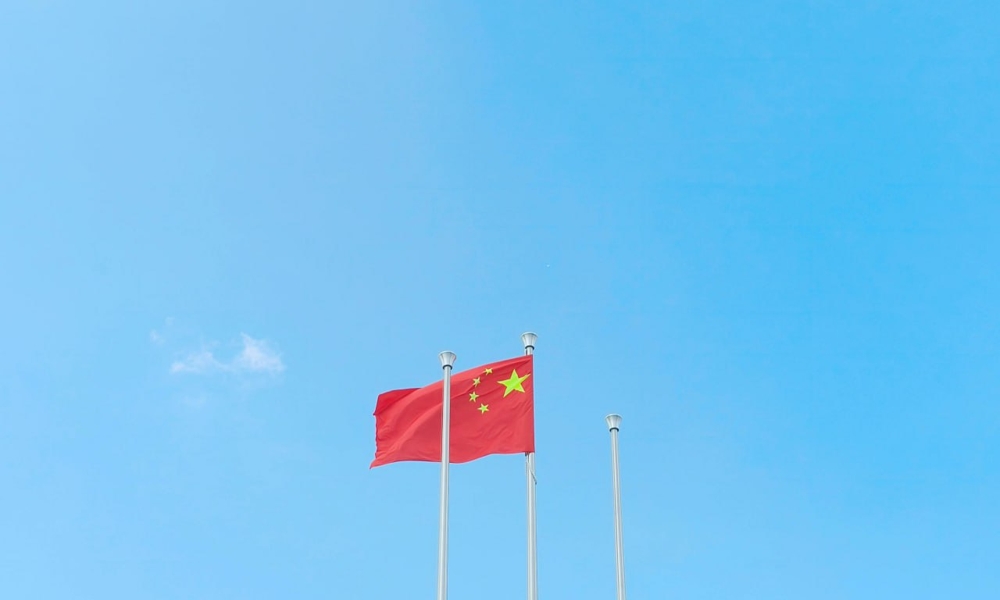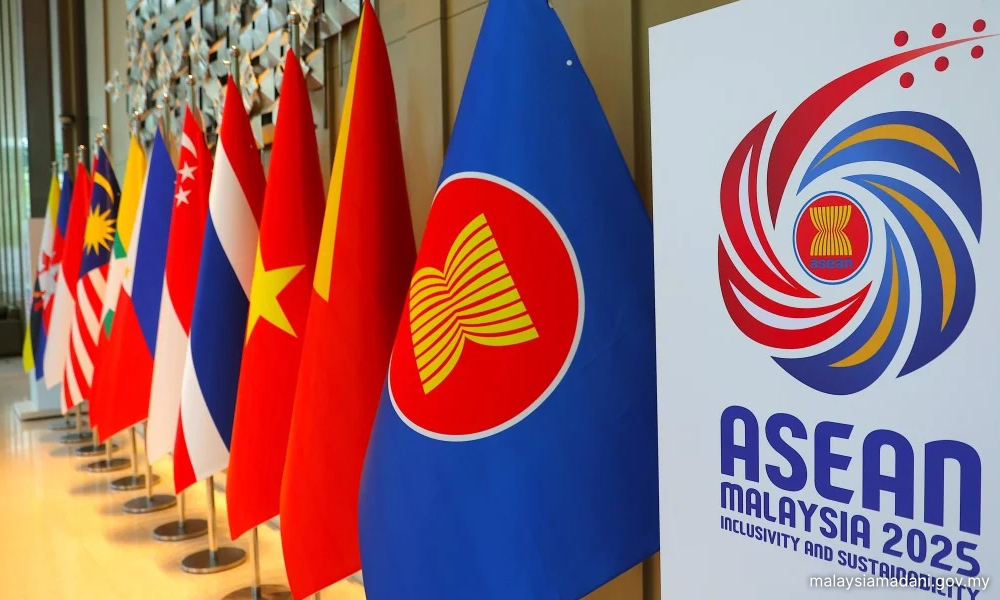The South China Sea (SCS) is recognised as one of the most strategically significant and disputed areas globally.
For Malaysia, the implications are considerable due to conflicting territorial claims, especially regarding its exclusive economic zone (EEZ) and the Spratly Islands.
In recent years, China’s aggressive expansion in the SCS has heightened regional tensions, threatening Malaysia’s territorial integrity and sovereignty.
As the Philippines advocates for a wider coalition to challenge China’s maritime supremacy, the informal “Squad” alliance, which includes Australia, Japan, the Philippines, and the United States, offers a potential avenue for Malaysia to protect its interests.
Squad offers counterbalance for M’sia
The establishment of the Squad in 2024 signifies a strategic pivot towards enhanced regional security collaboration in light of China’s expanding maritime dominance.
Unlike formal military alliances, the Squad operates as an informal and adaptable framework designed to improve collective security in the SCS without the constraints associated with traditional military agreements.
For Malaysia, this adaptability presents an optimal opportunity to fortify its security posture without provoking direct conflict with China.

The SCS serves as a crucial maritime corridor, essential not only for trade but also for significant natural resources such as oil, gas, and fisheries.
Malaysia, whose EEZ overlaps with China’s extensive territorial claims, has encountered mounting pressure from Chinese maritime forces in the area.
By engaging in the Squad, Malaysia would enhance its maritime capabilities through strengthened collaboration with key regional allies, including the United States, Japan, and Australia, which harbour similar apprehensions regarding China’s territorial pursuits.
This collaboration may encompass joint maritime patrols, intelligence sharing, and the augmentation of Malaysia’s naval and air force capabilities, thereby creating a deterrent against China’s coercive strategies.
Joining the Squad would provide Malaysia with essential military, economic, and diplomatic backing. This support is vital for safeguarding freedom of navigation in its waters, protecting its energy exploration initiatives, and asserting its rights to resource exploitation in the SCS.
Notably, the informal character of the Squad mitigates the risk of diplomatic repercussions with China, enabling Malaysia to maintain a balanced relationship with Beijing while affirming its sovereignty in the region.
SCS’ importance to Asean
The SCS serves as a critical point of contention for Malaysia and is of significant strategic and economic relevance to all Southeast Asian countries, especially those within Asean.

This maritime region ranks among the busiest trade routes globally, facilitating the passage of trillions of dollars in international commerce annually.
For Asean nations, which depend heavily on maritime trade, the security and stability of the SCS are intrinsically linked to their economic prosperity.
Additionally, the area is abundant in natural resources, such as fisheries and underwater oil and gas reserves.
The SCS is essential for the livelihoods of millions across Asean, with several nations, including Malaysia, asserting territorial claims over portions of the Spratly Islands, Paracel Islands, and adjacent waters.
Malaysia’s control over these territories is crucial for securing access to these resources, which are indispensable for its economic health.
Furthermore, the SCS is a focal point of geopolitical competition, particularly with China asserting its extensive claims via the contentious nine-dash line, which conflicts with the claims of Asean member states.
This situation is exacerbated by China’s militarisation of artificial islands and its frequent incursions into the EEZs of Asean countries, posing threats to regional security and stability.

As a collective body, Asean has faced challenges in formulating a cohesive response to China’s actions, with member states often divided on the appropriate course of action.
Malaysia’s role as Asean chair
As the 2025 Asean chair, Malaysia occupies a significant role in influencing the regional bloc’s approach to the challenges posed by the SCS.
In this leadership capacity, Malaysia has the potential to guide Asean’s strategy towards China, particularly by advocating for a cohesive position on safeguarding maritime security and territorial integrity in the SCS.
The diplomatic initiatives undertaken by Malaysia as Asean chair can also aim to enhance collaboration among member states, thereby ensuring that Asean remains pertinent and effective in tackling regional security issues.
In this regard, Malaysia’s leadership is vital for promoting dialogue within Asean and supporting the establishment of a unified platform for regional security.
The SCS remains a contentious issue within Asean, and Malaysia’s chairing offers a chance to advocate for a collective security framework that addresses the maritime challenges faced by the region.

Malaysia can champion the enforcement of the Code of Conduct (COC) in the SCS, which seeks to create behavioural guidelines to mitigate conflicts.
Nevertheless, Malaysia’s role necessitates a careful balance; while it leads Asean, it must also maintain economic and diplomatic relations with China.
Addressing the SCS issue requires astute management, and Malaysia’s initiatives as Asean chair can contribute to mitigating security risks in the region without exacerbating tensions with China.
Balancing act
The Squad provides Malaysia with a pragmatic and adaptable framework to protect its sovereignty in the SCS.
By fostering enhanced military collaboration, conducting joint operations, and engaging in intelligence-sharing with allied nations, Malaysia can reinforce its defences against China’s assertive maritime actions.
Also, the SCS holds significant importance for all Asean countries, not only due to its strategic value but also because of its economic resources and the stability it brings to the region.
As 2025 Asean chair, Malaysia is strategically positioned to shape the collective response to the SCS situation, promoting peace, security, and open trade in the area.
By partnering with the Squad, Malaysia can fortify its strategic stance while maintaining a balanced relationship with China, thereby safeguarding its territorial rights and enhancing regional stability. - Mkini
R PANEIR SELVAM is the principal consultant of Arunachala Research & Consultancy Sdn Bhd, a think tank specialising in strategic national and geopolitical matters.
The views expressed here are those of the author/contributor and do not necessarily represent the views of MMKtT.




No comments:
Post a Comment
Note: Only a member of this blog may post a comment.